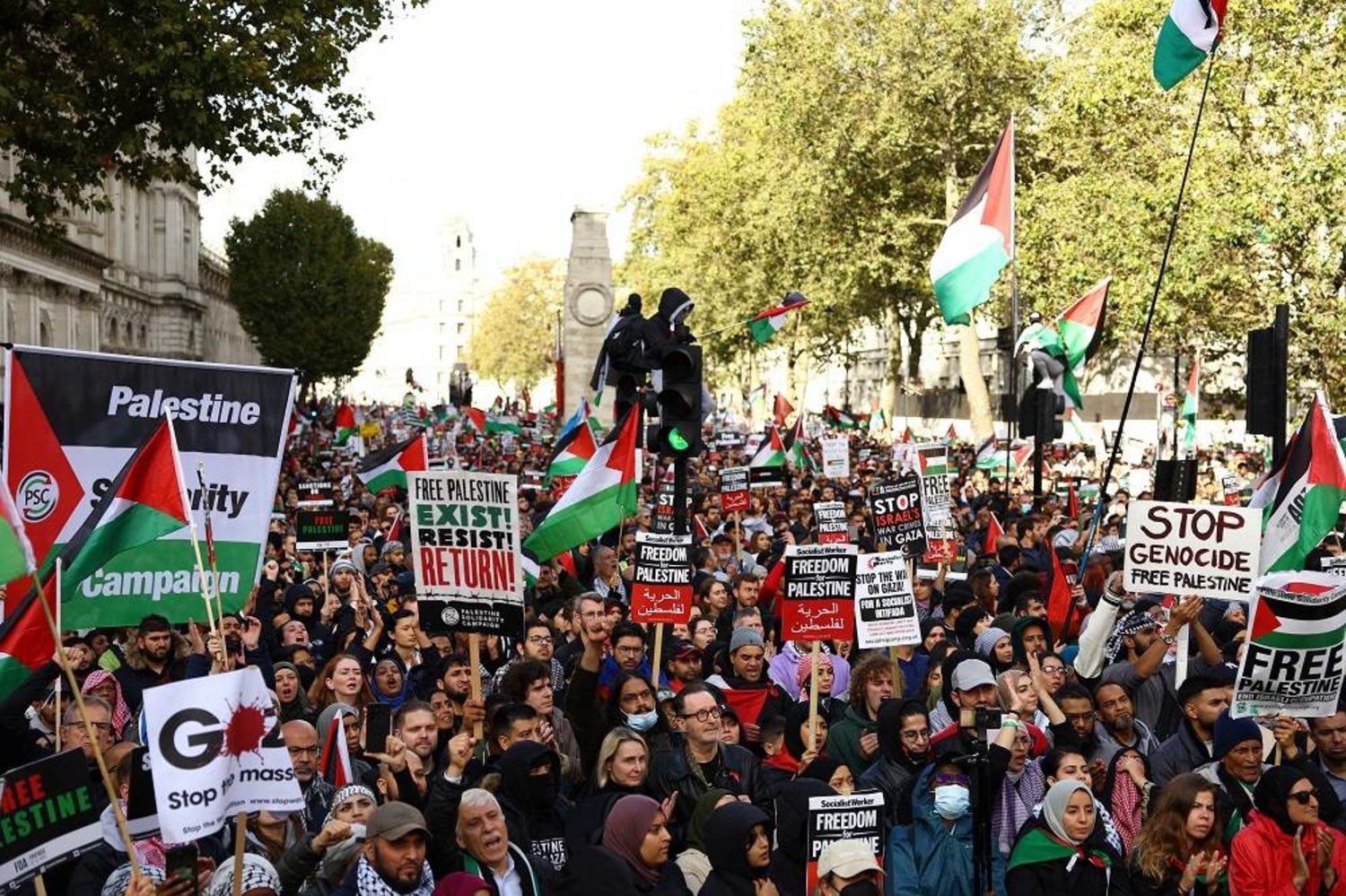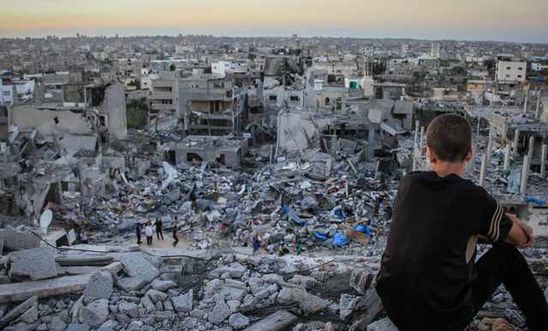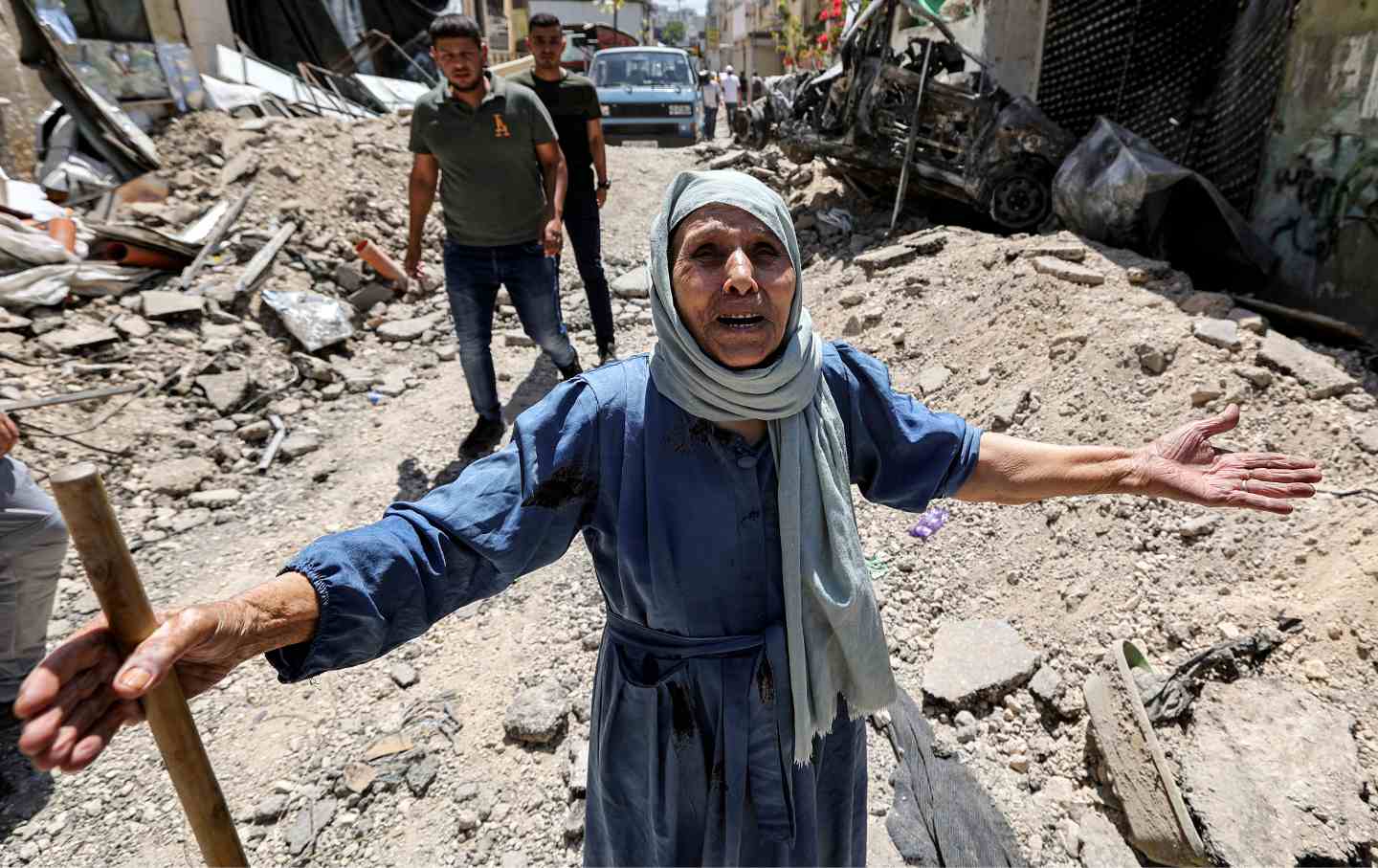While the Palestinians have unfortunately become all too familiar with unnecessary deaths, they will never come to accept them hands down. On January 16, 38-year-old Jamal Sarahin from the Hebron-area village of Tarqumiya died in an Israeli hospital apparently from complications resulting from pneumonia. Sarahin had been under Israeli administrative detention for the past eight months in the Negev Detention Center.
According to Fateh prisoner representative in the Legislative Council Issa Qaraqe, Sarahin passed away in the Soroka Hospital in Beer Sheva after his health severely deteriorated that morning. Qaraqe said Israeli prison authorities refused to offer immediate medical attention to the prisoner and only heeded repeated calls to have him transferred to the prison clinic and later to the hospital after his condition took a dangerous plunge for the worse.
Naturally, the prisoners and people at large are holding the Israeli prison authorities at the Negev Detention Center responsible for Sarahin’s death. Irate prisoners have clashed with prison guards in the desert penitentiary and all Palestinian prisoners have declared a hunger strike as of this morning in protest of Sarahin’s death.
Sarahin is certainly not the only Palestinian prisoner to perish in Israeli jails. Throughout the six years of the Aqsa Intifada alone, the Palestinian Prisoners Club has documented the deaths of 14 men behind Israeli bars.
While this man’s death was undoubtedly unnecessary and constitutes a tragic end for someone who practically had his whole life in front of him, perhaps it will also represent a wake-up call for our leadership and the international community as to how pressing the prisoners issue is and how imperative it is to find a solution to it.
As we have all seen, the prisoners issue – that is, the fate of approximately 10,000 Palestinian political prisoners currently serving time in Israeli jails – has been brought to the forefront of negotiations several times only to be shoved onto the back burner yet again. Politicians have used these men and women, who were willing to surrender their own lives and families for a cause still noble in their eyes, as nothing more than pawns on a chess board. Whenever the prisoners issue did not serve these politicians’ best interests, all without exception, were willing to push it aside for the sake of more immediate and more personal gains.
And still, when the ground was actually ripe for real development in this regard, the leadership botched up again because factional loyalties and petty power plays always blinded any clear perspectives.
For example, let us recall the moment of realization when Palestinian groups captured Israeli Corporal Gilad Shalit back in June. A chance in a million, most believed, because everyone knows Israel values its soldiers’ lives and would go great lengths to ensure their safe return to their homes and families in Israel.
For months, negotiations ensued over when and under what terms Shalit would be released. Barring the details, which included Egyptian mediation, ultimately, the negotiations were a bust. This is partly because of Israel’s intransigence over who it was willing to release. But mostly, the leadership, namely Hamas, since it bore direct responsibility for Shalit’s capture in the first place, could not completely grasp the concept that this really was a golden goose they should not allow to escape. For weeks, the public heard that a prisoner swap was imminent, we heard actual numbers and names and, against our better judgment, we let our hopes rise up yet again.
At any rate, this would-be prisoner exchange is just more water under the bridge. It is also an accumulative result of years of neglect towards our prisoners. Our leaders from all factions must reshuffle their priorities in a manner that would place these prisoners way on top. Is it not disgraceful enough that when the prisoners complete their sentences and are reintroduced to society, there are no jobs waiting for them or substantial compensation for the time they sacrificed for their country?
At least the plight of these prisoners should always be before us, the thought of their miserable conditions a burning reminder of the arduous tasks before us. When addressing the international community, the names of these prisoners and the living conditions they are forced to endure, the acts of resistance they embraced and the dreams they kept alive should be a constant litany on our lips.
Israeli authorities should not be allowed to feel that the death of a Palestinian prisoner as a result of their own medical negligence can go unpunished. Even one senseless death is one too many and Sarahin’s passing must not be in vain. We are at a crossroads again. We either let the fury over Sarahin’s death taper off until it is nonexistent or we rise up and let Israel and the world know that this is unacceptable and will never go unnoticed. Not to mention, Israel’s lack of medical treatment for the prisoners is in stark contravention with international and humanitarian law. As the occupier, Israel has an obligation to safeguard the well-being of the occupied people, political prisoners included.
It is important to remember that each and every prisoner currently languishing in Israel’s dismal jails has a name and a story that should be told. Jamal Sarahin was only 38. Even the Israeli authorities that arrested him could not pinpoint his “crime” thereby placing him under administrative detention, an arbitrary measure aimed at holding prisoners without trial. His wife is now a widow and his son fatherless. Isn’t that a story worth telling?
Joharah Baker is a Writer for the Media and Information Programme at the Palestinian Initiative for the Promotion of Global Dialogue and Democracy (MIFTAH). She can be contacted at mip@miftah.org










